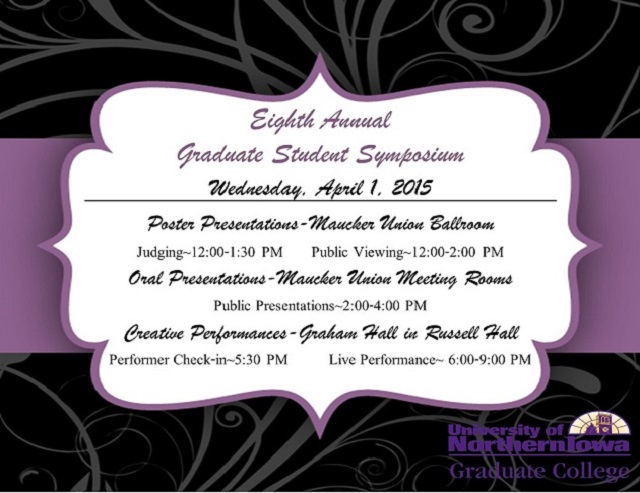
Complete Schedule
Presentation Type
Open Access Poster Presentation
Keywords
Post-traumatic stress disorder--Prevention; Self-esteem;
Abstract
The majority of the population will experience at least one potentially traumatic event (PTE) in their lifetime, however, only about 10-20% of those people will develop a chronic, adverse reaction to the event. One factor that may help to explain resistance to PTSD is self-enhancement. Self-enhancement is a tendency to view oneself in an overly positive manner, even despite evidence to the contrary. Although this has been found to work as a barrier against PTSD, it may also perpetuate the biggest barrier to PTSD treatment: public stigma. This study examined the multiple ways that self-enhancement functions within the realm of PTEs, PTSD, and resilience. Self-enhancement will be positively related to stigma attitudes and desired social distance. Self-enhancement will moderate the relationship between number of PTEs experienced and resilience. Controllability will moderate the relationship between self-enhancement and stigma.
114 undergraduate students completed a battery of questionnaires related to past traumatic experiences, self-reported resilience, PTSD symptoms, and self-enhancement. Participants were then assigned to one of two scenarios: 1) A person’s choices create circumstances leading to a traumatic event and eventual PTSD; 2) A person is forced into a traumatic event due to circumstances, in spite of the choices made. Participants then completed self-report measures of stigma and social distance.
Self-enhancement was positively related to both personal stigma attitudes and desired social distance from PTSD. Self-enhancement significantly predicted stigmatizing attitudes, and the interaction of self-enhancement and controllability was marginally significant. Implications for future research include development of anti-stigma education geared toward self-enhancers.
Start Date
1-4-2015 12:00 PM
End Date
1-4-2015 2:00 PM
Faculty Advisor
Seth Brown
Department
Department of Psychology
Copyright
© 2015 Corina Klein
File Format
application/pdf
Embargo Date
3-15-2015
Self-Enhancement in Relation to PTSD Stigma
The majority of the population will experience at least one potentially traumatic event (PTE) in their lifetime, however, only about 10-20% of those people will develop a chronic, adverse reaction to the event. One factor that may help to explain resistance to PTSD is self-enhancement. Self-enhancement is a tendency to view oneself in an overly positive manner, even despite evidence to the contrary. Although this has been found to work as a barrier against PTSD, it may also perpetuate the biggest barrier to PTSD treatment: public stigma. This study examined the multiple ways that self-enhancement functions within the realm of PTEs, PTSD, and resilience. Self-enhancement will be positively related to stigma attitudes and desired social distance. Self-enhancement will moderate the relationship between number of PTEs experienced and resilience. Controllability will moderate the relationship between self-enhancement and stigma.
114 undergraduate students completed a battery of questionnaires related to past traumatic experiences, self-reported resilience, PTSD symptoms, and self-enhancement. Participants were then assigned to one of two scenarios: 1) A person’s choices create circumstances leading to a traumatic event and eventual PTSD; 2) A person is forced into a traumatic event due to circumstances, in spite of the choices made. Participants then completed self-report measures of stigma and social distance.
Self-enhancement was positively related to both personal stigma attitudes and desired social distance from PTSD. Self-enhancement significantly predicted stigmatizing attitudes, and the interaction of self-enhancement and controllability was marginally significant. Implications for future research include development of anti-stigma education geared toward self-enhancers.



Comments
Category: Poster Presentations - Research